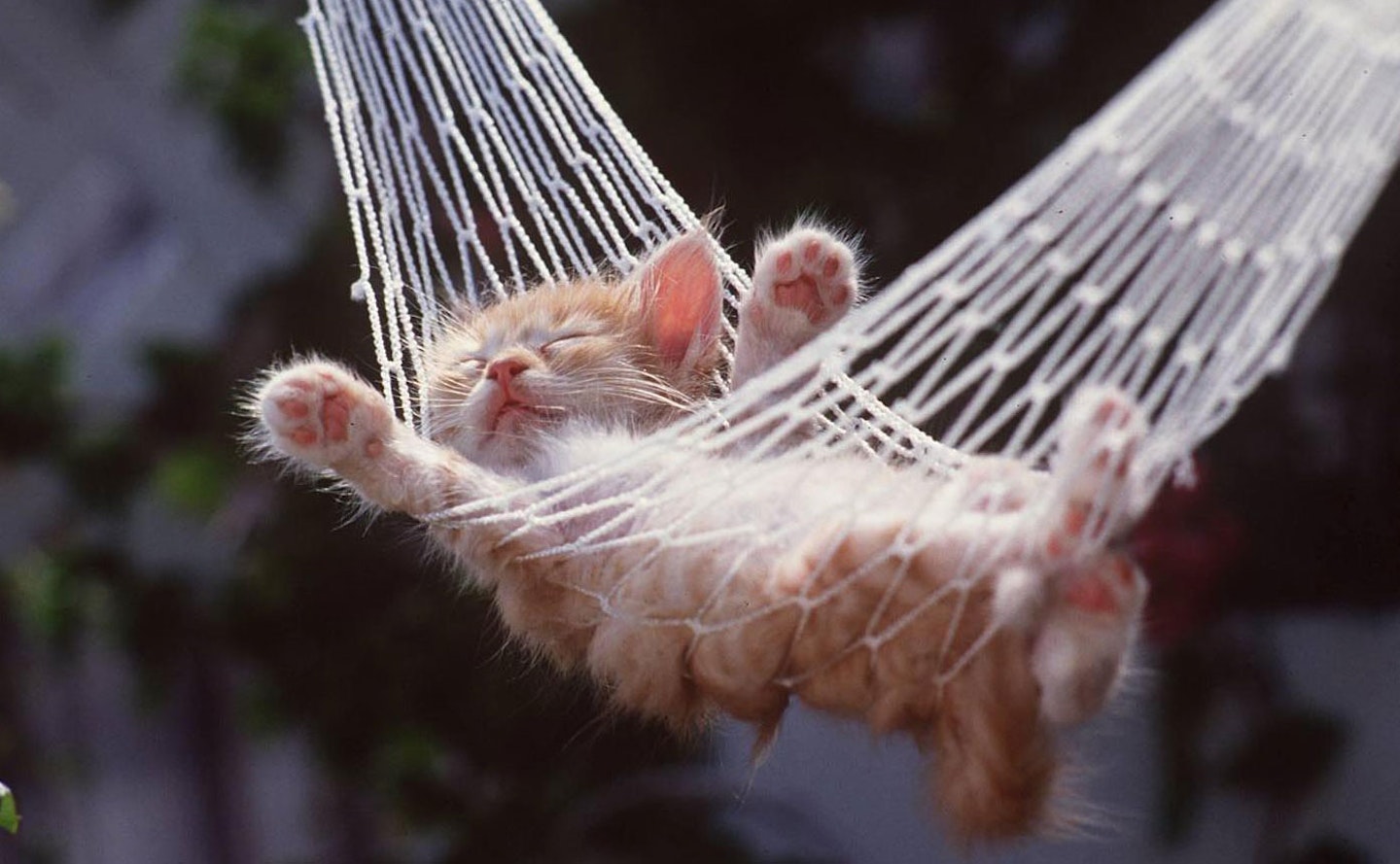Working in an open-plan office is the greatest lesson in tact and diplomacy that modern life can offer.
Day after day, we fume quietly as a colleague crank up the air conditioning to glacial heights, clamp on headphones to drown out the noise of squelchy al desko eating, or grit our teeth as our next-door neighbour conducts a Skype call at volumes that would rival a Glastonbury set.
Even as we roll our eyes, we know deep down that we're responsible for a few anti-social habits ourselves. Such is their compulsive nature, we sometimes don't even notice that we're being That Person.
In the spirit of team building (ha), we look at some common culprits of workplace discontent; and how they actually symbolise wonderful things.
From the optimism of latecomers to the bonding skills of those who can't stop moaning, prepare to see these office bugbears in new and refreshingly positive light...
1. The Mighty Messy Eater
.jpg?auto=format&w=1440&q=80)
If you're the kind of person who ends up spraying your Pret sandwich liberally over your keyboard, or with mayo down your top two minutes before that crucial pitch: take comfort.
For your sloppy eating ways may just be a symbol of your status and influence in the workplace.
A team of psychologists at the University of California, Berkeley found a correlation between terrible table manners and perceived power.
In what they called their Cookie Monster survey, researchers gave groups of volunteers - one of whom was randomly assigned leader - plates of biscuits during a variety of menial tasks.
"And, lo and behold, our high-power person [the leader] is more likely to eat with their mouth open, lips smacking, crumbs literally like falling onto their sweater," says Berkeley academic Dacher Keltner, leading the study. "It’s ridiculous."
So why the connection?
"It makes you impulsive when you feel powerful, you kind of lose touch with other people," says Dr. Keltner. "You stop attending carefully to what other people think."
2. The Astute Heavy Sigher

Do you find yourself frequently sighing at work? Perhaps you don't even mean to, but before you can catch yourself, you're exhaling loudly and letting everyone know how you really feel about whatever bad idea, new working practice or unrealistic budget plan is being mooted.
Sighing IS linked to a negative mood state of frustration, boredom or defeat. But beyond that, it may also be a sign that you're in tune with your emotional state and needs.
Psychologists at the University of Oslo found sighing acts as a very effective "mental reset button" to address an inner sense of uncertainty, and provide a sense of relief.
"The act of sighing implicitly carries two messages," write physicians Donald McCown and Marc S. Micozzi. "First, something is not right, that is, there is a mismatch of how I wish it to be and how it actually is.
"Second, the message is a movement toward acceptance, that is, there is a sense that I must 'let go' of something."
The upshot? Frequent or heavy sighers don't lack tact; they're merely more perceptive and intuitive than the rest of us.
Oh, and they're more prone to using a reflex that scientists say is life-sustaining and helps to preserve lung function. Win.
3. The Unifying Moaner

We all know someone in the office who just can't stop themselves moaning, whether it's about the endless rain, the jammed photocopier or - mostly likely - their clueless boss.
There's little doubt that constant complaining is not an effective "vent" tool. Science shows it's bad for both your physical and mental health, since negative thoughts are likely to trigger a vicious circle in your brain, as the associated stress takes its toll on your body.
However, moaning or whining can also act as a effective bonding mechanism that draws people together.
"It’s one way to create rapport," Joanna Wolfe, a professor of English and communications researcher at Carnegie-Mellon University, tells the New York Times. For example, complaining about a late bus with other passengers "creates kind of a solidarity".
"I call it co-miserating," says Eric Zimmer, host of The One You Feed psychology podcast. "It can bring people closer, but there are healthier ways of bonding."
In a column in praise of complaining, the Guardian's wellbeing writer Oliver Burkeman hails the way in which moaning forges a connection, which can lead to "a lasting, emotionally supportive friendship".
He quotes Mariana Alessandri, a philosopher at the University of Texas, who says, "Just because the topic of conversation is negative rather than positive doesn’t mean we’re unhappy, and often the opposite is the case. Two strangers complaining on a subway platform can end up cracking a smile or laughing."
Moaners, rejoice: you're simply taking a hit for team spirit.
4. The Team-Building Layabout

Can't be bothered to pull your weight at work? If you're the lazy cat in the office, take pride in your reputation.
For it turns out, your idle ways may be for the greater good of the group.
A 2016 study from Hokkaido University in Japan looked at laziness in ant colonies. Researchers discovered that around 30% of the ants basically spent their time doing nothing; grooming, aimlessly wandering about or lying still.
In the short-term, the role of these ants wasn't obvious; but in the longer-term, the team observed that they actually helped their colony become more resilient.
This is because when the hard-working ants burnt out, the lazy ones ended up stepping up and acting as reinforcements for their exhausted colleagues.
"In the short term, lazy ants are inefficient, but in the long term, they are not," says agricultural professor Eisuke Hasegawa, leading the study.
Laziness is also a trait that's been linked by science to a higher IQ and deeper thought process.
So, those taking time out on Tinder or making a tea run last 45 minutes; carry on. You're indirectly helping your colleagues AND you're exceedingly bright. Probably.
5. The Optimistic Late-Comer

If you're forever late to work or meetings, you might end up being unfairly perceived as a bit chaotic or unreliable.
But those judging are simply not seeing the bigger picture. Because people who are compulsively late actually have a host of glowing personality habits that go hand-in-hand with their aptitude for tardiness.
Research speculate that latecomers are optimists by nature, and are fuelled by the conviction - correct or otherwise - that they can find a certain amount of tasks into less time.
"They really believe they can go for a run, pick up their clothes at the dry cleaners, buy groceries and drop off the kids at school in an hour," says Diana DeLonzor, author of Never Be Late Again. "They remember that single shining day 10 years ago when they really did all those things in 60 minutes flat, and forget all the other times that everything took much, much longer."
Optimism in itself brings a host of benefits to the workplace that may outweigh lateness, such as building a sense of clarity and vitality, and fostering an enhanced feeling of community spirit.
Studies indicate that the positivity of those who have a more relaxed perception of time means they are more creative and successful than those who are constantly playing by the clock.
Researchers at San Diego State University also found that latecomers tend to be more laid-back and easygoing than their time-sensitive colleagues (who surely, by default, are more uptight...)
So, all in all, if you're continually late: take heart. You're just a happy-go-lucky kinda soul who is likely to do well in life, no matter what time you turn up.
6. The Creative Hoarder

Is your pedestal overflowing with the debris of office life, from broken biros to boxes of tampons and out-of-date cupcakes? Can you hardly move for the sea of shoes that litter the underneath of your desk? Perhaps you and your next-door neighbour are embroiled in a passive aggressive battle about your overflowing desk space...
Whatever way your workplace hoarding habits manifest themselves, rest assured they could be a complimentary reflection of who you are.
"Hoarders are thinking about all their stuff the way you think about the contents of your jewellery box," says Nicholas Maltby, a psychologist who works with compulsive hoarders at the Institute of Living in Hartford, Connecticut, tells Discover Magazine.
He notes that hoarders tend to be intelligent and well educated, and they typically think in complex ways:
"They may have more creative minds than the rest of us in that they can think of more uses for a possession than we can."
Of course, these benefits are only worth it when the hoarding in question is low-level - as opposed the serious affliction of compulsive hoarding.
But it's good to know that your stockpiling of workplace junk has its advantages; something to note when the office manager next comes patrolling.
Read More: Five Bad Habits That Actually Mean You're Brilliant
Read More: Can You Guess What The UK's Most Annoying Work Phrase Is?
